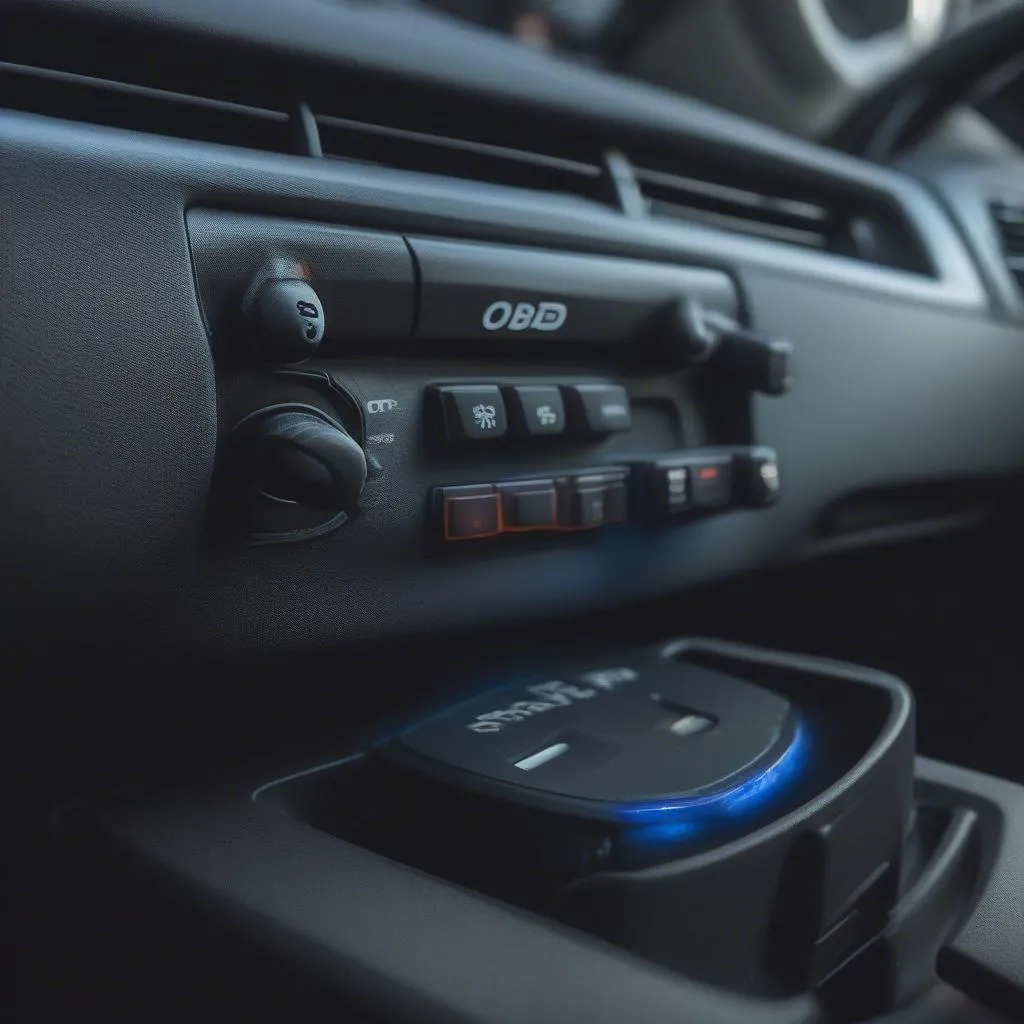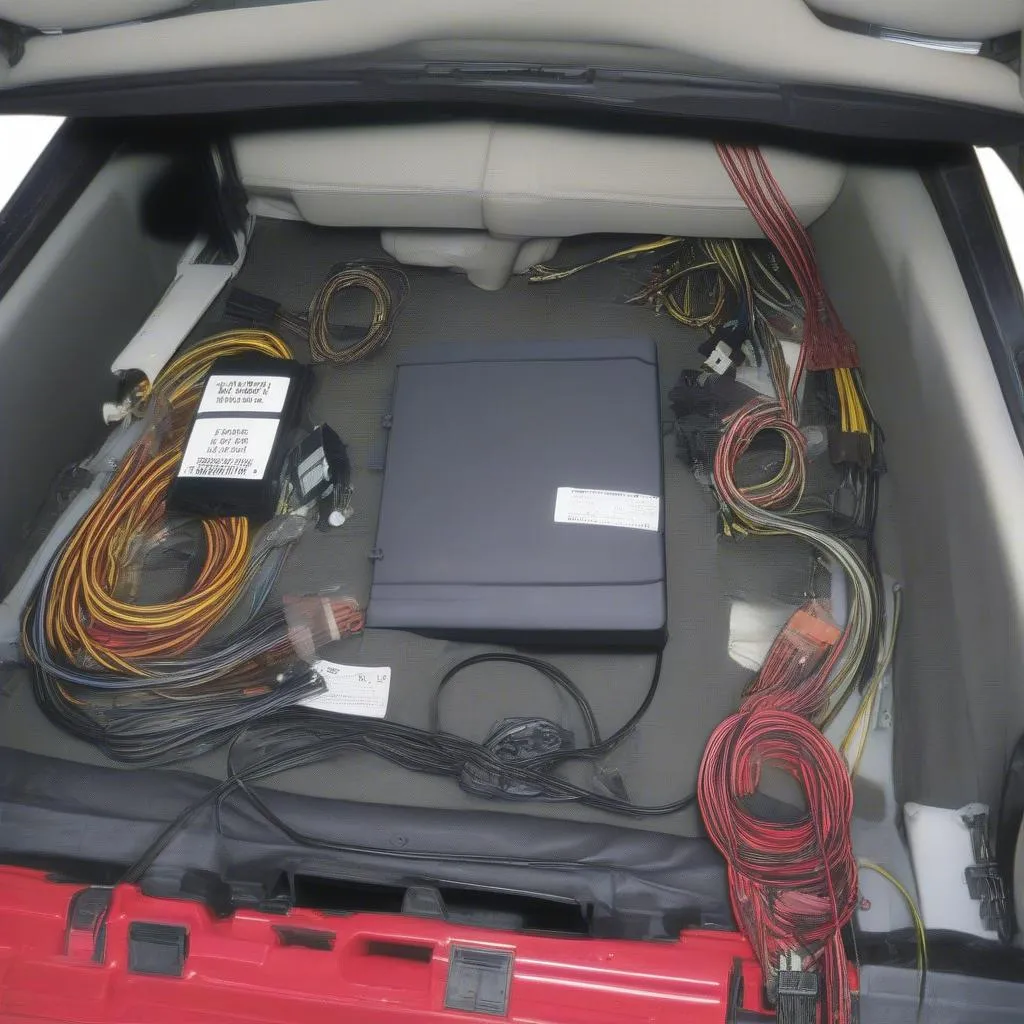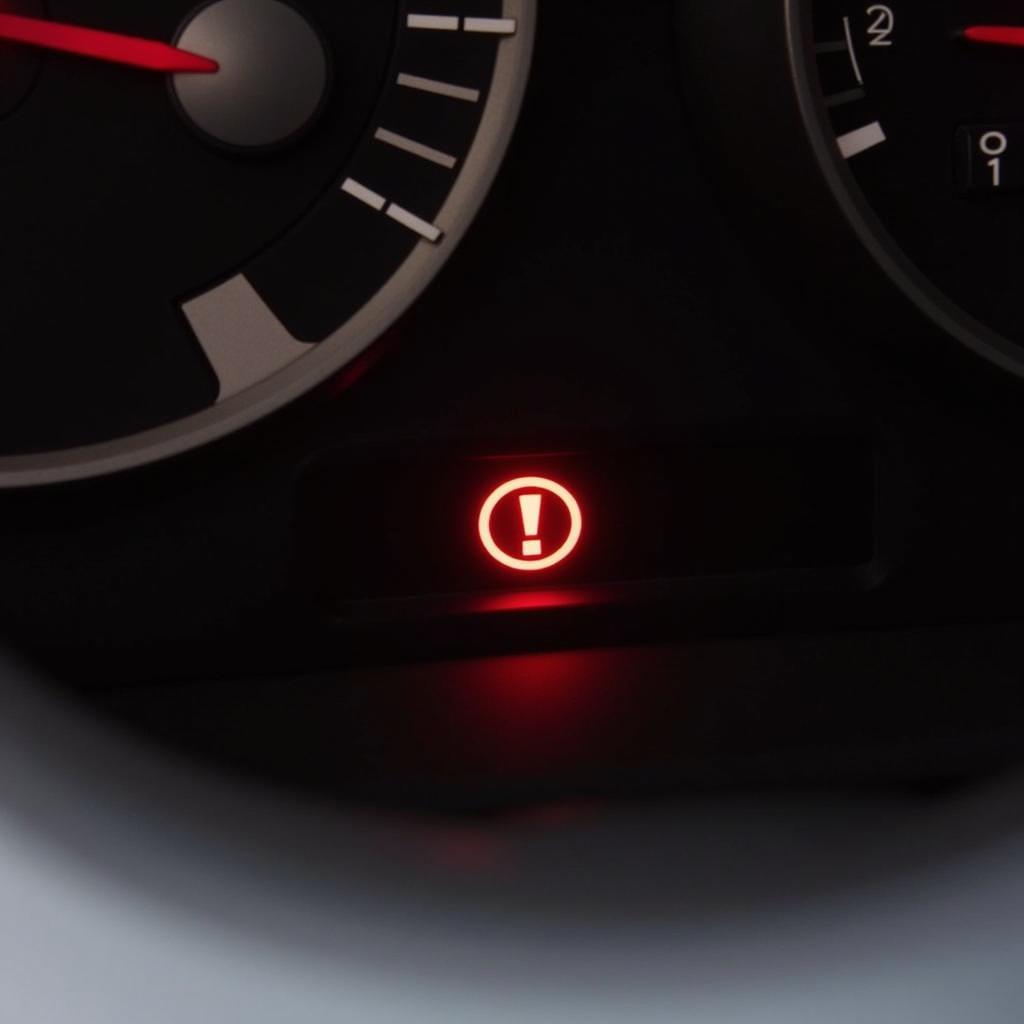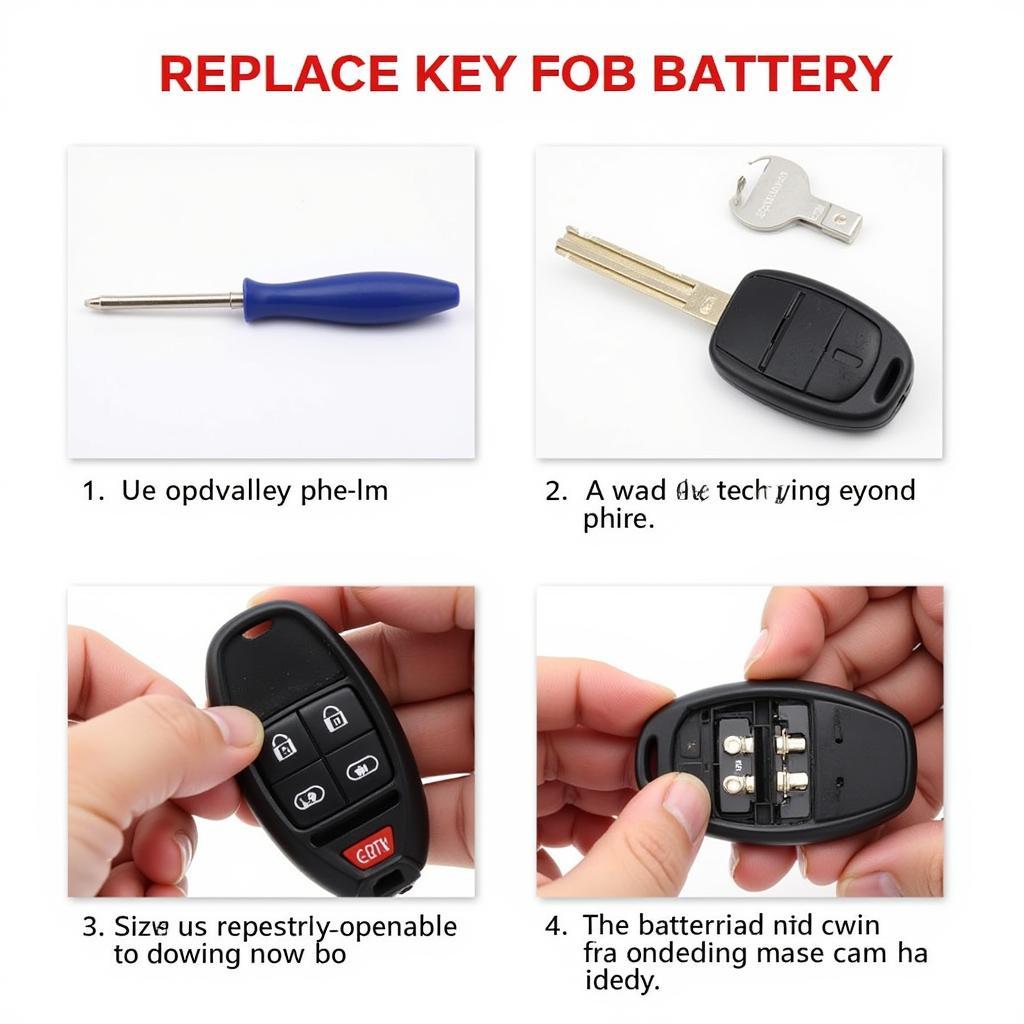Is your 2003 Kia Sedona acting up? Experiencing trouble starting, a flashing immobilizer light, or issues with your key fob? The culprit might be a faulty anti-theft module. This guide will walk you through the basics of checking your anti-theft module (also known as an immobilizer system) and point you in the right direction for getting back on the road.
Understanding the Anti-Theft Module
Before diving into diagnostics, it’s helpful to understand what the anti-theft module does. This system is designed to deter theft by preventing the engine from starting unless the correct key (or key fob) is present. It does this by communicating with a transponder chip in your key. If the module doesn’t recognize the chip, it won’t allow the vehicle to start.
Identifying a Potential Anti-Theft Module Issue
Here are some common signs that your Kia Sedona’s anti-theft module might be having problems:
- Engine Cranks but Won’t Start: This is a classic symptom. The engine turns over, but it doesn’t fire up.
- Immobilizer Warning Light: If you see a flashing car icon with a key symbol on your dashboard, it’s a strong indication of an immobilizer issue.
- Key Fob Malfunctions: Problems with your key fob locking/unlocking doors or the remote start feature not working could be linked.
What You’ll Need
While we won’t cover in-depth repair here, to diagnose and potentially fix an anti-theft issue, you might need:
- OBD-II Scanner: This tool allows you to read diagnostic trouble codes stored in your car’s computer.
- Repair Manual: A Kia Sedona-specific manual is invaluable for locating components and understanding wiring diagrams.
 OBD2 Port Location
OBD2 Port Location
How to Check Your Anti-Theft Module (2003 Kia Sedona)
Important: Anti-theft systems are complex. If you’re not comfortable working with automotive electronics, it’s best to consult a qualified mechanic.
-
Check Your Key Fob Battery: It might seem obvious, but a dead key fob battery can sometimes mimic immobilizer problems. Replace the battery and try again.
-
Inspect the Key: Look for any visible damage to your key or key fob, particularly around the transponder chip (usually embedded in the key).
-
Read Diagnostic Trouble Codes: Connect your OBD-II scanner to the diagnostic port (usually located under the driver’s side dash) and check for any codes related to the immobilizer system. These codes can give you a starting point for troubleshooting.
-
Visual Inspection: If comfortable, refer to your repair manual to locate the anti-theft module in your Sedona. Check for loose connections, corrosion, or any visible damage to the module itself or related wiring.
-
Seek Professional Help: Anti-theft module issues often require specialized equipment and knowledge. If you suspect a module problem, it’s highly recommended to contact a qualified automotive electrician or your Kia dealership for further assistance.
 Anti-theft Module
Anti-theft Module
FAQs about Car Anti-Theft Systems
Q: Can I bypass the anti-theft system on my Kia Sedona?
A: While technically possible, bypassing the anti-theft system is strongly discouraged. It compromises your vehicle’s security and may even be illegal in some areas.
Q: How much does it cost to replace an anti-theft module?
A: Costs vary depending on the make and model of your car and labor rates. On average, expect to pay between $200 to $500 or more for parts and labor.
Q: Are there aftermarket anti-theft modules available?
A: Yes, but it’s crucial to choose a reputable brand and ensure compatibility with your Kia Sedona’s specific make, model, and year. Professional installation is usually required.
Need More Help?
Cardiagtech offers a range of advanced diagnostic tools designed to help you pinpoint and resolve automotive issues, including those related to anti-theft systems.
[Link to Cardiagtech product page]
[Link to Cardiagtech services page]
For more in-depth technical support or to schedule a diagnostic appointment, contact the experts at CARDIAGTECH today. We’re here to help you get back on the road safely!


